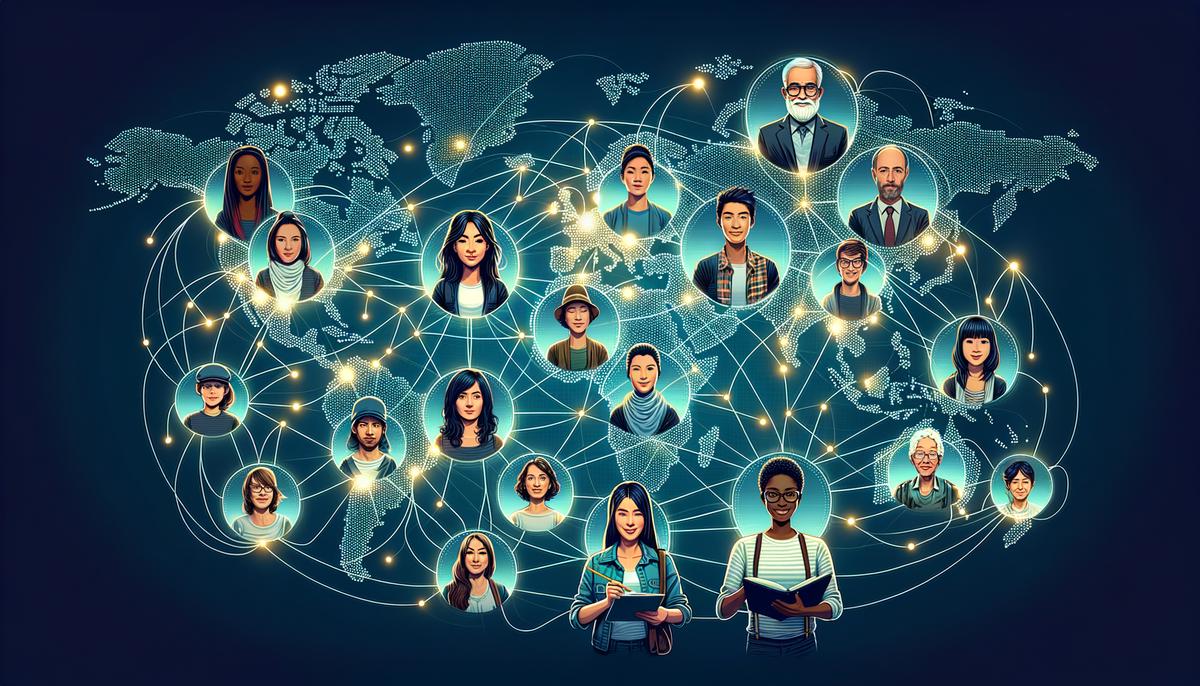Supporting Mental Health Through Nurtured Online Friendships
In our journey through life, friendships stand as pillars, providing support, joy, and companionship. With the digital age upon us, online friendships have blossomed, offering unique avenues for connection. The thread of human connection, interwoven with the pixels of our screens, can indeed contribute positively to our mental health. Here’s how we can nurture these relationships to flourish and positively impact our wellbeing.
Regular Check-ins and Active Listening
Commitment to regular conversations holds the key to deepening online friendships. It’s through these interactions that we can provide support and affirmation to our friends. Active listening goes a long way. Showing genuine interest in their life stories, challenges, and successes fosters a connection that transcends physical barriers. This attentiveness signals that despite the miles that may separate us, we’re never truly alone in our experiences.
Creating Space for Vulnerability
Vulnerability is the bridge to meaningful connections. It’s important to cultivate an environment where friends feel safe to share their thoughts and feelings without fear of judgment. This mutual trust not only strengthens the bond but acts as a balm, healing the scars of isolation or distress. Remind your friends, and yourself, that it’s okay to not be okay, and sharing one’s struggles is a sign of courage, not weakness.
Celebrating Milestones Together
Take joy in commemorating each other’s accomplishments, no matter how small they may seem. This could be through a thoughtful message, a virtual celebration, or even sending a small gift through the mail. These gestures reinforce the significance of the friendship and remind us that our virtual companions are rooting for us, sharing in our triumphs as if they were their own.
Encouraging Healthy Online Boundaries
While online friendships can be a source of comfort and belonging, it’s vital to establish healthy boundaries. Encourage times of digital detox to engage in real-world activities, nourishing the soul and mind. This balance ensures that online relationships enhance rather than detract from our psychological health.
Engaging in Mutual Interests and Activities
Participating in activities, even virtually, can cement an online friendship. Whether it’s playing an online game together, watching a movie in sync, or tackling a virtual project, shared interests create memories and deepen the bond. These activities offer both a diversion from the stressors of daily life and a sense of camaraderie and belonging.
Seeking and Offering Support
Remember, the support in friendship is a two-way street. Being there for each other during tough times reinforces the trust and reliability of the relationship. Whether it’s offering words of encouragement, sharing resources, or just lending an ear, these acts of kindness illuminate the worth of your connection, providing a beacon of hope and positivity.
Fostering Growth and Development
Lastly, encourage and support each other’s growth. Online friendships provide a unique platform to share insights, expand knowledge, and challenge perspectives. Engage in discussions, share articles, or partake in online courses together. This mutual investment in personal development not only enriches the individual but strengthens the foundation of the friendship itself.

The exploration of online friendships reveals a complex web of social dynamics, psychological impacts, and opportunities for personal development. While the digital landscape presents unique challenges, it also offers unparalleled potential for forging connections that might have been impossible in a solely physical world. By understanding and embracing the qualities that make online friendships valuable, we can enrich our lives with a diversity of perspectives, support systems, and experiences. As we continue to weave the threads of digital connections into the fabric of our social lives, the importance of approaching these relationships with empathy, openness, and intention cannot be overstated. The evolving nature of friendship in the digital age calls for an evolving understanding, one that appreciates the depth and breadth of connections beyond the screen.
The Role of Online Friendships in Identity and Self-Discovery
Online friendships offer a distinctive sphere for experimenting with self-concept and presentation. In the digital world, individuals often encounter the liberty to express facets of their identity that might remain concealed in face-to-face settings. This form of self-presentation can play a pivotal role in self-discovery. Users, through feedback from online peers, engage in a process of refining their self-image and identity. This cycle of expression and reinforcement can lead to a strengthened sense of self or, conversely, to further exploration and questioning.
A central aspect of online friendships is the exchange of perspectives that span diverse backgrounds and cultures. Such interactions can profoundly impact an individual’s worldview and personal identity. Being exposed to varied viewpoints and experiences encourages empathy, adaptability, and a broader understanding of one’s place in the world. This expansion of horizons can be pivotal in shaping personal beliefs, values, and, ultimately, identity.
Moreover, the anonymity and perceived safety of online interactions can foster a sense of freedom in exploring sensitive or stigmatized aspects of identity. For individuals grappling with issues related to gender, sexuality, or mental health, online communities often become a sanctuary for exploration and acceptance. The affirmation and support found in these settings can be transformative, enabling individuals to integrate these aspects into their overall identity confidently.
However, this journey is not devoid of challenges. The disconnect between online personas and real-life identity can create confusion and conflict. Individuals may struggle with translating their online experiences into their offline lives, leading to a disjointed sense of self. Furthermore, the reliance on digital validation can jeopardize self-esteem, making it contingent on external affirmation rather than internal conviction.


